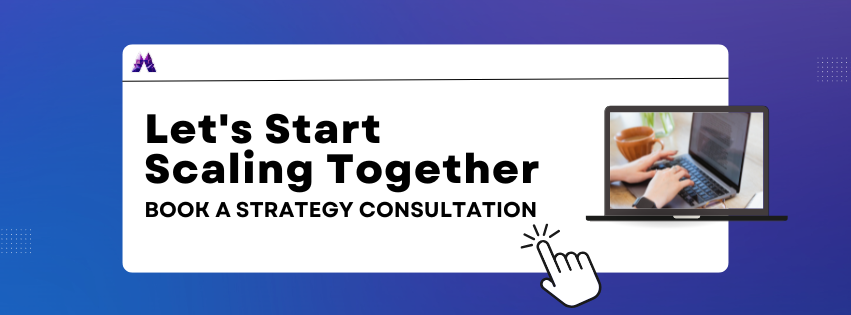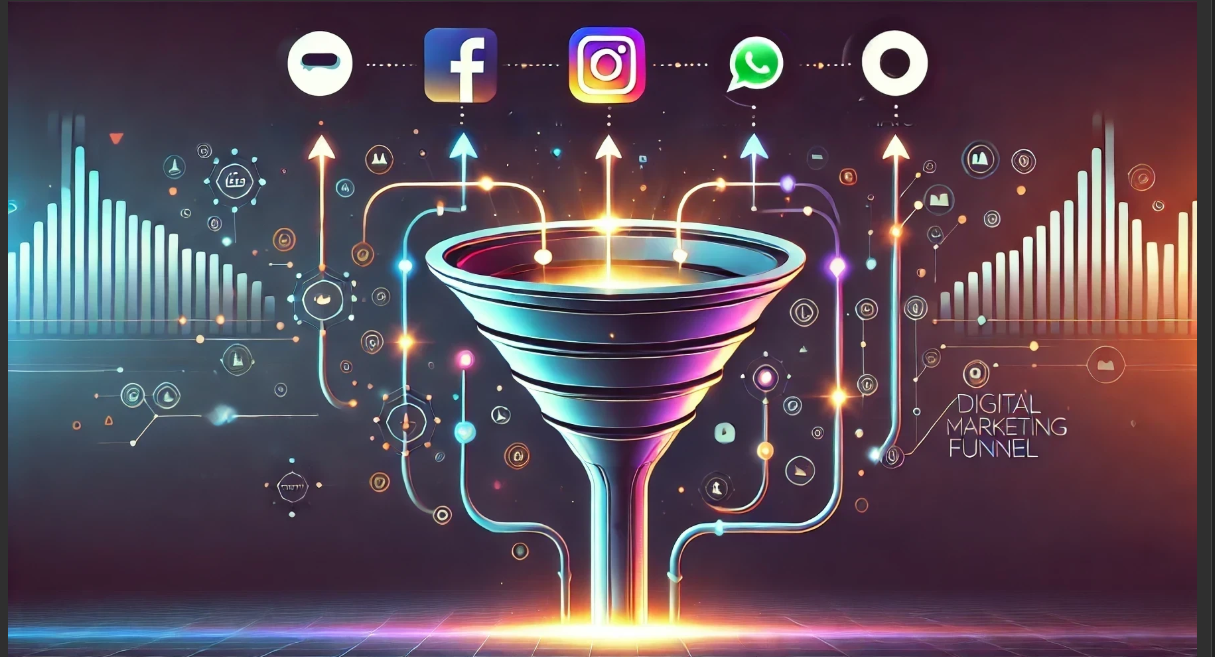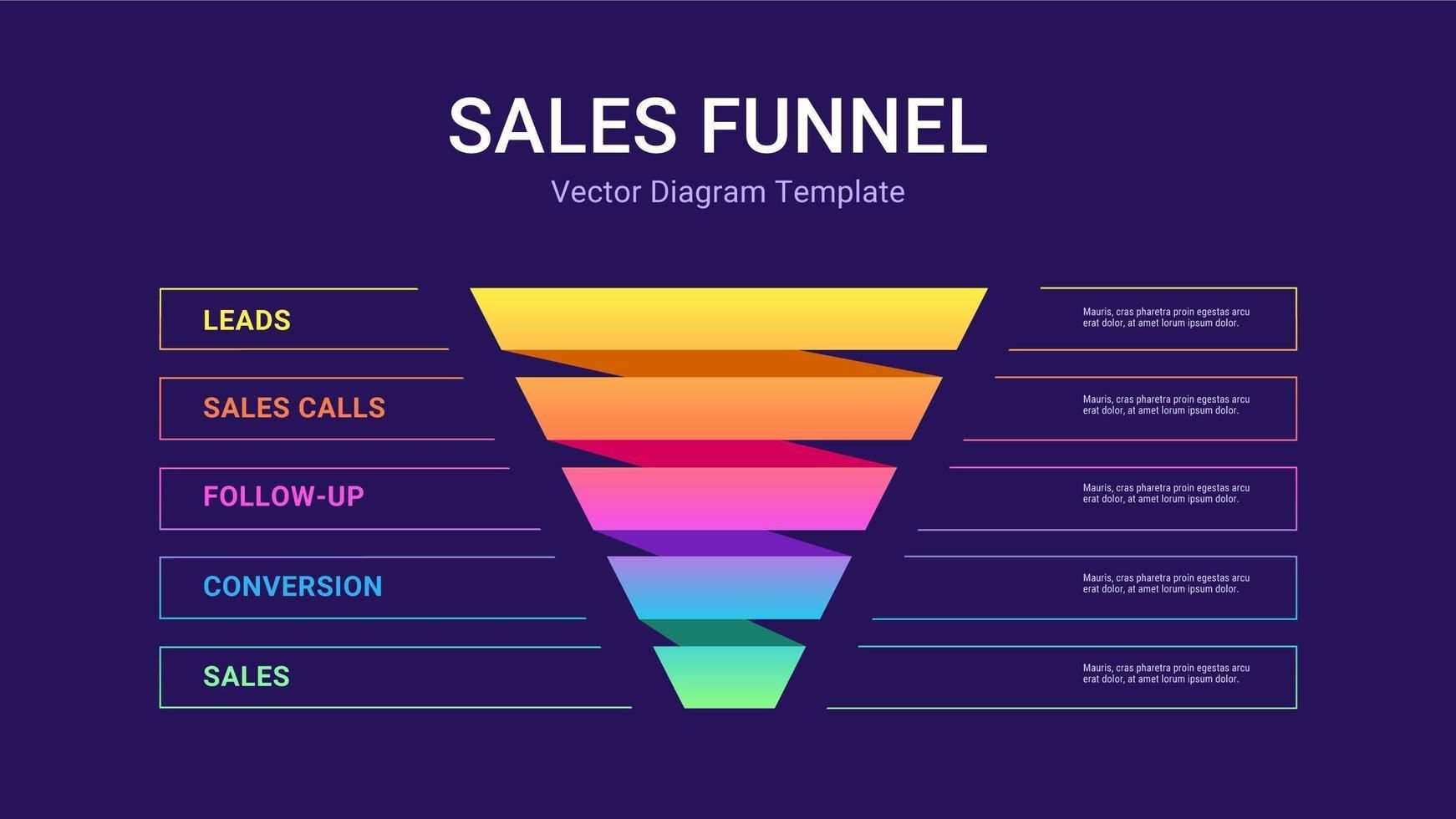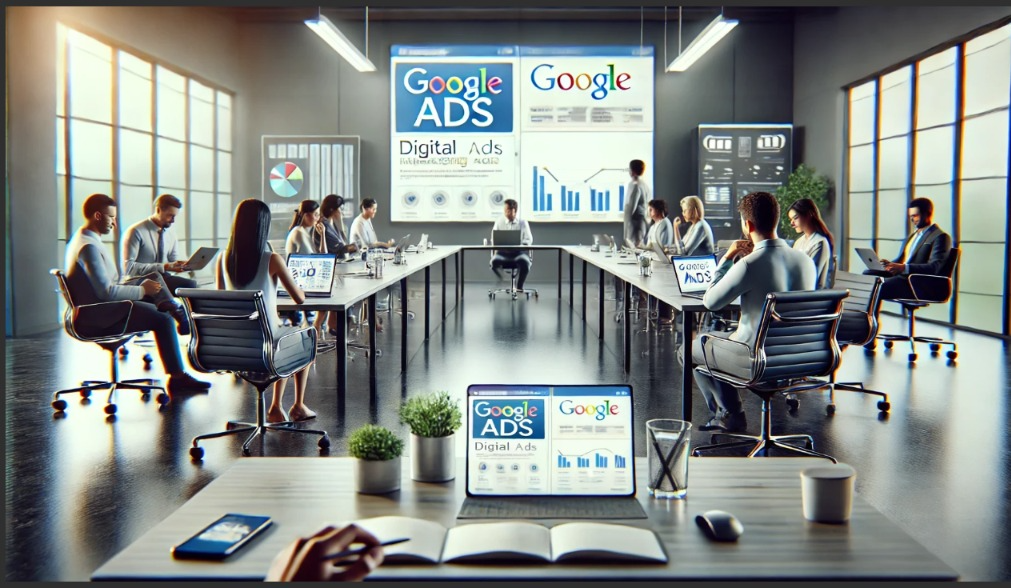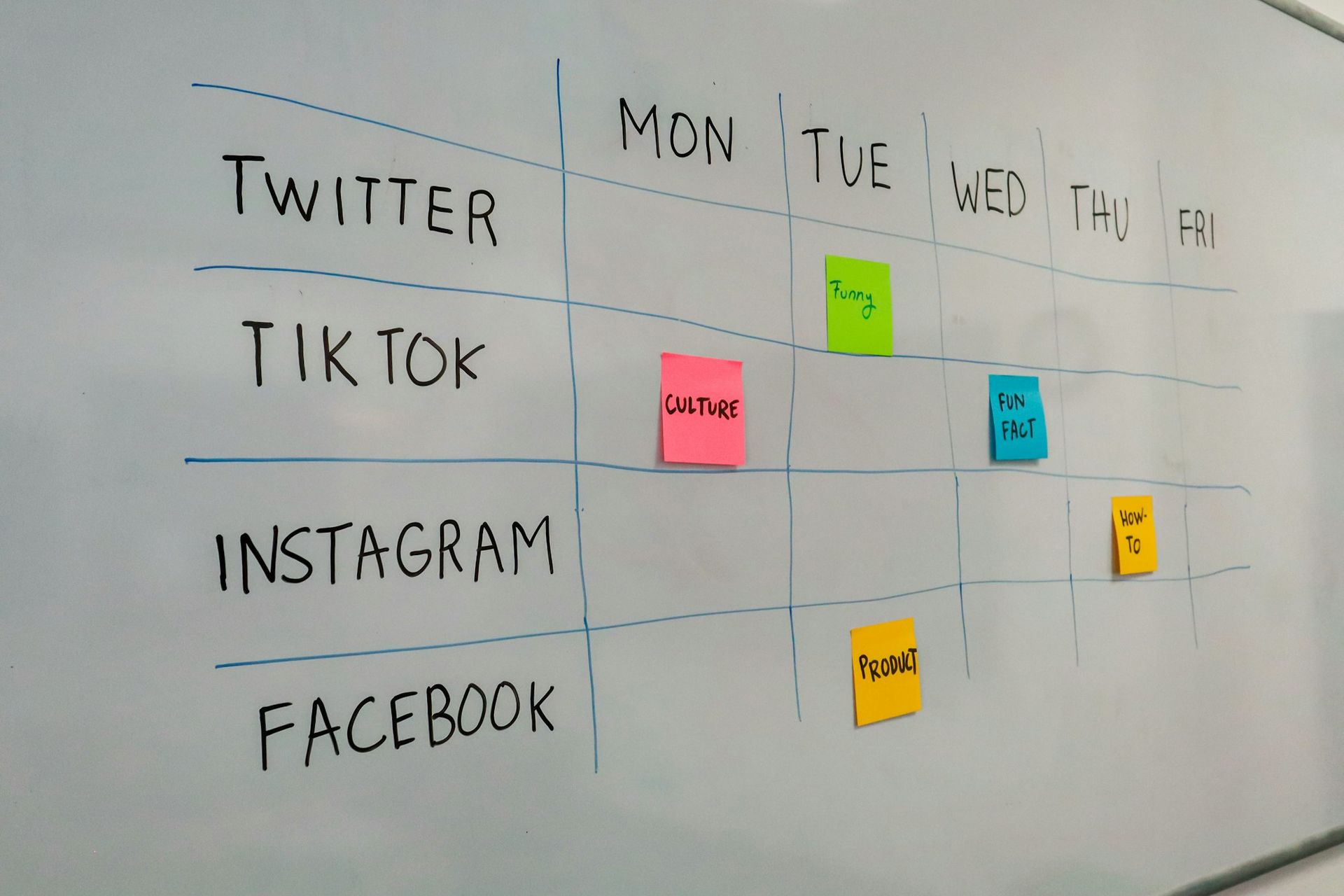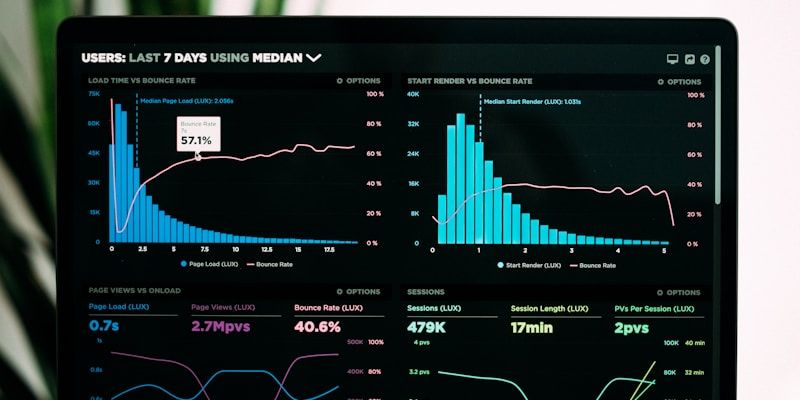The Importance of Full Funnel Performance Marketing: A Complete Guide for 2025
Importance of Full Funnel Performance Marketing
Full funnel performance marketing increases conversion rates by 91% and improves marketing ROI by up to 3x compared to single-touch campaigns.
In 2025, usinesses can no longer afford to focus solely on bottom-funnel conversions while neglecting the critical touchpoints that guide prospects through their entire customer journey.
Full funnel performance marketing represents a data-driven approach that optimizes every stage of the customer journey—from initial awareness to post-purchase advocacy. Unlike traditional marketing strategies that prioritize quick wins, this comprehensive methodology ensures consistent messaging, personalized experiences, and measurable results across all touchpoints.
What’s Inside?
1. Introduction
- Statistical opener about conversion improvements
- Define full funnel performance marketing
- Preview key benefits and strategies
2. Foundation and Evolution
- Definition and core concepts
- How marketing funnels have evolved in 2025
- Why traditional funnel approaches fall short
3. Core Components and Strategy
- Performance marketing funnel stages breakdown
- Integration of data and attribution across touchpoints
- Technology stack requirements
4. Benefits and ROI Impact
- Quantifiable benefits with statistics
- Case studies and examples
- Cost efficiency improvements
5. Implementation and Measurement
- Setting up attribution models
- Key metrics and KPIs
- Tools and platforms
6. Challenges and Solutions
- Common pitfalls
- Best practices for overcoming obstacles
7. Conclusion and Next Steps
- Recap key points
- Call to action for implementation
Bottom Line First
Full funnel performance marketing increases conversion rates by 91% and improves marketing ROI by up to 3x compared to single-touch campaigns. This data-driven approach optimizes every customer touchpoint—from initial awareness to post-purchase advocacy—creating seamless experiences that maximize both short-term conversions and long-term customer lifetime value.
What is Full Funnel Performance Marketing
Full funnel performance marketing is a comprehensive strategy that leverages data-driven insights to optimize marketing efforts across every stage of the customer journey. This approach ensures that marketing investments deliver measurable returns while creating seamless, personalized experiences that guide prospects from initial awareness to long-term loyalty.
The concept extends beyond traditional funnel thinking by recognizing that modern customer journeys are non-linear. According to recent studies, 70% of customers interact with three or more touchpoints before making a purchase decision, often moving back and forth between funnel stages across multiple platforms and devices.
This methodology combines the precision of performance marketing—with its focus on measurable outcomes and ROI optimization—with the comprehensive reach of full-funnel strategies that address every customer touchpoint. The result is a marketing approach that maximizes both short-term conversions and long-term customer lifetime value.

The Evolution of Marketing Funnels in 2025
The marketing landscape has fundamentally shifted in 2025, driven by AI-powered personalization, cross-platform integration, and increasingly sophisticated consumer behavior. Traditional linear funnels have evolved into dynamic, interconnected customer journeys that require a more nuanced approach to optimization.
Key changes reshaping marketing funnels include:
Modern consumers seamlessly move between digital touchpoints, with mobile traffic accounting for over 60% of all web interactions. This fluidity demands marketing strategies that can adapt in real-time to changing customer behaviors and preferences. AI-driven insights now enable marketers to predict customer intent with unprecedented accuracy, allowing for hyper-personalized experiences at scale.
The rise of first-party data importance has also transformed how marketers approach funnel optimization. With increasing privacy regulations and the deprecation of third-party cookies, successful full funnel marketing strategies now prioritize direct customer relationships and zero-party data collection across all touchpoints.
Additionally, the integration of Web3 technologies and metaverse marketing creates new opportunities for immersive brand experiences. Forward-thinking companies are already exploring how Web3 marketing strategies can enhance traditional funnel approaches with virtual environments and blockchain-based loyalty programs.

Core Components of Full Funnel Marketing Strategy
A successful full funnel marketing strategy requires five essential components that work synergistically to create cohesive customer experiences. Understanding these elements is crucial for implementing effective performance marketing funnel stages that drive measurable results.
1. Comprehensive Data Integration and Attribution
Modern marketing attribution models form the foundation of effective full funnel strategies. Multi-touch attribution allows marketers to understand how different touchpoints contribute to conversions, enabling more informed budget allocation and campaign optimization decisions.
2. Personalized Content and Messaging Strategy
Each funnel stage requires tailored content that addresses specific customer needs and pain points. Top-of-funnel content focuses on education and awareness, while middle and bottom-funnel materials emphasize solutions and conversions. This personalization extends to dynamic website experiences, email campaigns, and social media interactions.
3. Cross-Channel Campaign Coordination
Effective full funnel performance marketing ensures consistent messaging across all channels while adapting format and tone to platform-specific audiences. This includes coordinating paid social, search marketing, email campaigns, content marketing, and emerging channels like podcast advertising and influencer partnerships.
4. Advanced Marketing Technology Stack
Successful implementation requires robust technology infrastructure including customer data platforms (CDPs), marketing automation tools, analytics platforms, and attribution software. These tools enable real-time optimization and provide the insights necessary for data-driven decision making.
5. Continuous Testing and Optimization Framework
Performance marketing thrives on continuous improvement through A/B testing, multivariate testing, and iterative optimization. This includes testing creative variations, audience segments, bidding strategies, and funnel experiences to maximize conversion rates and ROI.

Performance Marketing Funnel Stages Explained
Understanding performance marketing funnel stages enables marketers to create targeted strategies that address specific customer needs and behaviors at each phase of the journey. Modern funnels extend beyond purchase to include retention and advocacy stages.
Top of Funnel (Awareness Stage)
The awareness stage focuses on introducing your brand to potential customers who may be experiencing a problem but haven't yet identified potential solutions. Key tactics include SEO-optimized content marketing, social media engagement, display advertising, and thought leadership content. Success metrics include reach, impressions, brand awareness lift, and initial website visits.
Middle of Funnel (Consideration Stage)
During the consideration phase, prospects actively research solutions and evaluate different options. This stage requires educational content, product demonstrations, comparison guides, and nurturing campaigns. Marketing automation plays a crucial role in delivering personalized experiences based on previous interactions and behavioral data.
Bottom of Funnel (Decision Stage)
The decision stage focuses on converting qualified prospects into customers through compelling offers, social proof, and friction-free purchasing experiences. Key tactics include retargeting campaigns, personalized product recommendations, customer testimonials, and optimized conversion paths.
Post-Purchase (Retention and Advocacy)
The often-overlooked post-purchase stage focuses on customer retention, upselling, and advocacy. This includes onboarding sequences, customer success programs, referral campaigns, and loyalty initiatives that maximize customer lifetime value and generate organic growth through word-of-mouth marketing.
For businesses looking to integrate these concepts with emerging technologies, exploring performance marketing capabilities can provide additional insights into modern funnel optimization strategies.
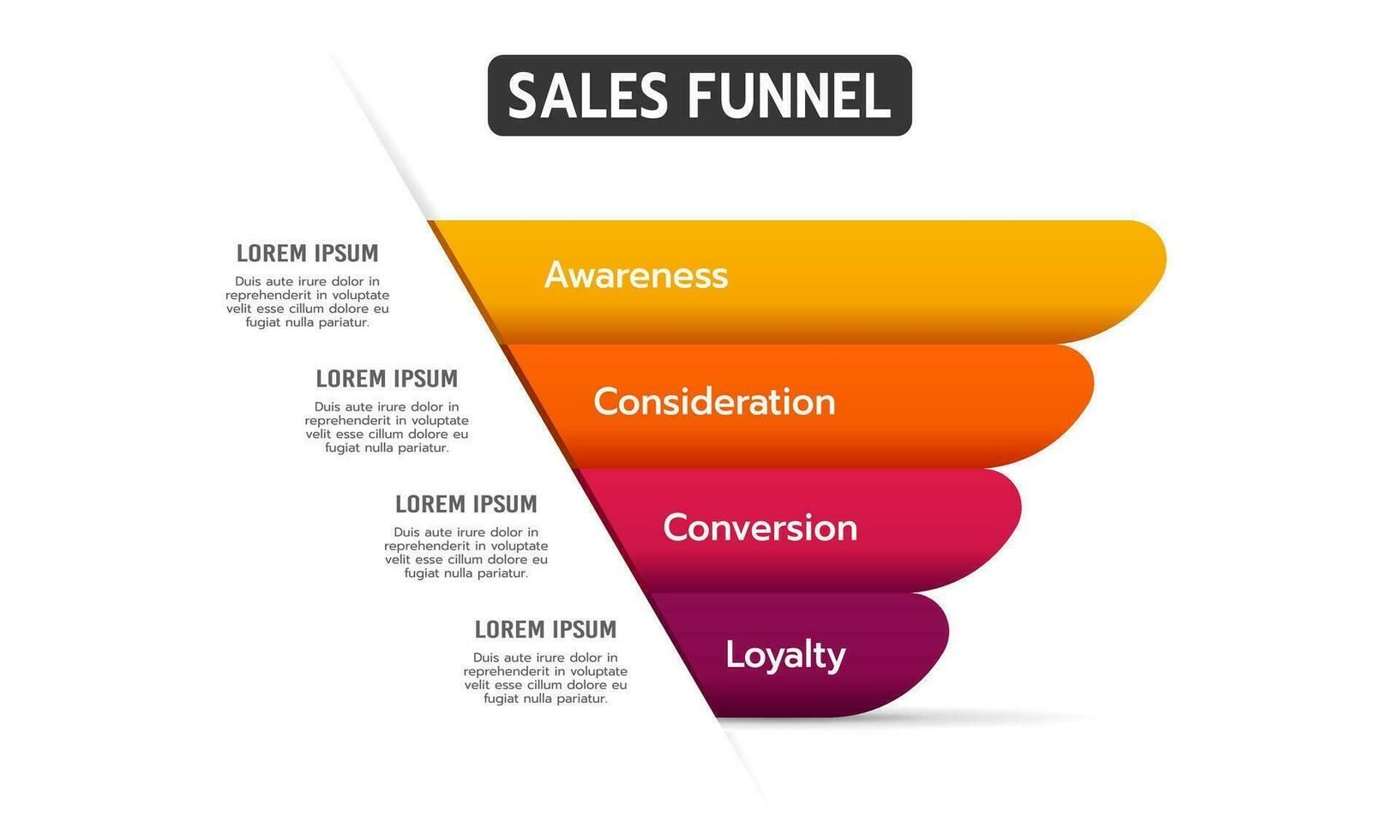
Benefits of Full Funnel Marketing Implementation
Implementing a comprehensive full funnel marketing strategy delivers significant benefits that extend far beyond immediate conversion improvements. Companies that adopt this approach typically see substantial improvements in both short-term performance and long-term business growth.
Quantifiable Performance Improvements
Organizations implementing full funnel strategies report 15-20% higher ROI compared to single-stage focused campaigns. The integrated approach enables better budget allocation, with businesses able to identify and invest more heavily in high-performing touchpoints while reducing waste in underperforming channels.
Customer acquisition costs typically decrease by 25-40% as improved attribution reveals the true effectiveness of different marketing channels. This insight allows marketers to optimize their media mix and focus resources on activities that generate the highest quality leads and customers.
Enhanced Customer Experience and Loyalty
Full funnel approaches create more cohesive customer experiences, leading to improved satisfaction scores and increased customer lifetime value. Personalized touchpoints throughout the journey result in stronger brand connections and higher retention rates.
Improved Competitive Positioning
Companies with sophisticated full funnel marketing benefits gain significant competitive advantages through better customer insights, faster optimization cycles, and more effective resource allocation. This systematic approach to marketing enables businesses to respond more quickly to market changes and customer behavior shifts.
The data-driven nature of full funnel marketing also provides valuable insights for product development, pricing strategies, and market expansion decisions. These insights extend marketing value beyond customer acquisition to inform broader business strategy.
For organizations considering advanced marketing approaches, understanding metaverse marketing opportunities can provide additional competitive advantages in emerging digital channels.

Measuring Success Across the Entire Funnel
Effective measurement requires a sophisticated approach to attribution reporting that goes beyond last-click attribution to understand the true impact of marketing activities across the entire customer journey. This comprehensive measurement strategy enables marketers to optimize their efforts based on accurate data rather than assumptions.
Key Performance Indicators by Funnel Stage
Top-of-funnel metrics focus on reach and engagement, including impressions, click-through rates, cost per click, and brand awareness lift. These metrics help evaluate the effectiveness of awareness-building activities and guide investment decisions in reach-extending channels.
Middle-funnel measurement emphasizes qualification and progression, tracking metrics like email signup rates, content engagement depth, lead scoring progression, and nurturing campaign effectiveness. These indicators reveal how well marketing efforts move prospects toward purchase consideration.
Bottom-funnel metrics concentrate on conversion efficiency, including conversion rates, cost per acquisition, average order value, and sales cycle length. These measurements directly tie marketing activities to revenue generation and ROI.
Advanced Attribution Modeling
Modern attribution requires sophisticated modeling that accounts for cross-device behavior, offline interactions, and complex customer journeys. Multi-touch attribution models provide more accurate insights into channel effectiveness than traditional last-click models.
Successful implementation often involves using conversion rate optimization techniques to continuously improve funnel performance based on attribution insights. This iterative approach ensures that measurement directly informs optimization efforts.

Common Challenges and Solutions
While full funnel performance marketing offers significant benefits, implementation often presents challenges that require strategic solutions. Understanding these common obstacles helps organizations prepare for successful adoption.
Data Integration Complexity
Many organizations struggle with fragmented data across multiple platforms and touchpoints. The solution involves implementing robust customer data platforms (CDPs) and establishing clear data governance protocols that ensure consistent, accurate information flows across all marketing systems.
Attribution Accuracy Issues
Cross-device tracking and long sales cycles can complicate attribution modeling. Advanced attribution software and careful implementation of first-party data collection strategies help address these challenges while maintaining customer privacy compliance.
Resource and Skill Requirements
Full funnel strategies require diverse skill sets spanning analytics, creative development, technology management, and strategic planning. Many organizations address this through strategic partnerships with specialized agencies or by investing in team training and development programs.
Budget Allocation Optimization
Determining optimal budget distribution across funnel stages requires sophisticated analysis and testing. Starting with conservative test budgets and gradually scaling successful initiatives helps minimize risk while building organizational confidence in the approach

Future Trends in Full Funnel Performance Marketing
The future of full funnel marketing strategy will be shaped by emerging technologies, changing consumer behaviors, and evolving privacy regulations. Artificial intelligence will play an increasingly important role in personalizing customer experiences and predicting optimal touchpoint sequences.
Voice commerce, augmented reality experiences, and immersive technologies will create new touchpoints that require integration into existing funnel strategies. Marketers must prepare for these developments while maintaining focus on fundamental principles of customer-centric marketing.
Privacy-first marketing approaches will become standard, with successful organizations building competitive advantages through superior first-party data strategies and customer relationship management. This shift will reward companies that prioritize transparent, value-driven customer interactions over traditional advertising approaches.

Getting Started with Full Funnel Performance Marketing
Successful implementation begins with comprehensive customer journey mapping and existing performance analysis. Organizations should start by identifying current gaps in their funnel coverage and prioritizing improvements based on potential impact and resource requirements.
Technology infrastructure assessment is crucial for determining what systems and integrations are needed to support full funnel strategies. This includes evaluating current marketing automation capabilities, analytics platforms, and attribution tools.
Starting with pilot programs allows organizations to test full funnel approaches on a smaller scale before company-wide implementation. These pilots provide valuable learning opportunities and help build internal expertise and confidence.
The importance of full funnel performance marketing cannot be overstated in today's competitive landscape. Organizations that embrace this comprehensive approach will be better positioned to build sustainable competitive advantages, improve customer relationships, and drive long-term business growth. The time to begin implementing these strategies is now, as the complexity and sophistication of customer journeys will only continue to increase.
Frequently Asked Questions
What is the difference between full funnel marketing and traditional marketing funnels?
Full funnel marketing takes a comprehensive, data-driven approach to optimizing every stage of the customer journey, while traditional funnels often focus primarily on awareness and conversion without integrating performance measurement across all touchpoints.
How long does it take to see results from full funnel performance marketing?
Initial improvements in attribution and optimization can be seen within 30-60 days, while significant ROI improvements typically manifest within 3-6 months of implementation. Long-term benefits continue to compound over 12+ months
What budget should companies allocate to full funnel marketing?
Budget allocation varies by industry and business model, but successful implementations typically dedicate 40-50% to top and middle funnel activities, with the remainder focused on bottom funnel conversion optimization.
Which attribution model works best for full funnel marketing?
Multi-touch attribution models, particularly time-decay and position-based models, provide the most accurate insights for full funnel strategies. The specific model choice depends on your sales cycle length and customer journey complexity.
How does full funnel marketing integrate with emerging technologies like AI and Web3?
AI enhances personalization and predictive capabilities across all funnel stages, while Web3 technologies create new touchpoints for customer engagement and community building. Both technologies amplify the effectiveness of comprehensive funnel strategies.
What are the most important metrics to track in full funnel performance marketing?
Key metrics include customer acquisition cost (CAC), lifetime value (LTV), attribution across touchpoints, progression rates between funnel stages, and overall marketing ROI. The specific metrics should align with your business objectives and customer journey characteristics.
Can small businesses implement full funnel performance marketing effectively?
Yes, small businesses can implement scaled versions of full funnel strategies using cost-effective tools and focusing on the most impactful touchpoints. Starting with basic attribution and gradually expanding capabilities allows for sustainable growth within budget constraints.
Key Takeaways
Performance Impact
- 91% increase in conversion rates compared to traditional marketing approaches
- 15-20% higher ROI than single-stage focused campaigns
- 25-40% decrease in customer acquisition costs through improved attribution insights
Modern Customer Behavior
- 70% of customers interact with 3+ touchpoints before making purchase decisions
- 60% of web interactions happen on mobile requiring cross-platform integration
- Non-linear customer journeys move back and forth between funnel stages across devices
Technology Foundation
- Multi-touch attribution models provide accurate insights beyond last-click
- Customer Data Platforms (CDPs) enable comprehensive data integration
- AI-powered personalization delivers tailored experiences at scale
Strategic Components
- Five essential elements: Data integration, personalized content, cross-channel coordination, advanced tech stack, continuous optimization
- Four funnel stages: Awareness, consideration, decision, and post-purchase retention/advocacy
- Privacy-first approaches building competitive advantages through first-party data
Implementation Benefits
- Enhanced customer experience leads to improved satisfaction and loyalty
- Better competitive positioning through superior customer insights
- Improved budget allocation by identifying high-performing touchpoints
Future Readiness
- AI integration for predictive customer journey optimization
- Voice commerce and AR creating new integrated touchpoints
- Web3 technologies offering immersive brand experiences and blockchain loyalty
Getting Started
- Map current customer journeys and identify funnel gaps
- Assess technology infrastructure for integration capabilities
- Start with pilot programs to test approaches before full implementation
- Focus on first-party data collection for privacy compliance and better insights
Organizations that embrace full funnel performance marketing gain sustainable competitive advantages through improved customer relationships, optimized resource allocation, and data-driven decision making across all touchpoints.












